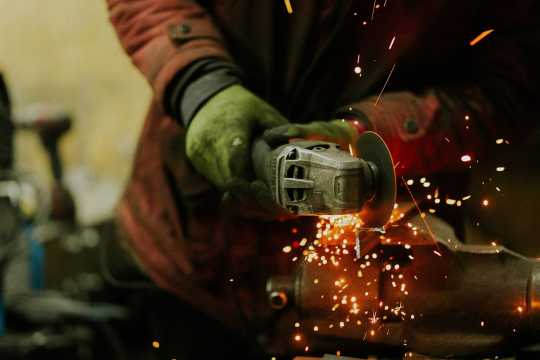In today’s fast-paced world, the use of technology has become increasingly prominent in various industries. One such technology that has gained significant traction in recent years is machine learning. Machine learning involves the use of algorithms and statistical models to enable computers to learn from and make decisions based on data without being explicitly programmed. One area where machine learning is proving to be invaluable is in predictive maintenance.
Predictive maintenance is a strategy that uses data and analytics to predict when a piece of equipment is likely to fail so that maintenance can be performed just in time to prevent the failure. This approach contrasts with traditional maintenance strategies that rely on predefined maintenance schedules or reactive maintenance, where maintenance is performed after a piece of equipment has already failed.
Machine learning algorithms are well-suited for predictive maintenance because they can analyze vast amounts of data to identify patterns and make predictions with high accuracy. By leveraging machine learning algorithms for predictive maintenance, organizations can achieve several benefits, including reduced downtime, lower maintenance costs, and increased operational efficiency.
One of the key advantages of using machine learning algorithms for predictive maintenance is the ability to predict equipment failures before they happen. Traditional maintenance approaches often involve replacing components on a fixed schedule, which can result in unnecessary downtime and increased maintenance costs. By using machine learning algorithms to analyze sensor data collected from equipment, organizations can identify patterns that indicate when a piece of equipment is likely to fail. This allows maintenance teams to proactively replace components before they fail, thereby minimizing downtime and reducing maintenance costs.
Another advantage of leveraging machine learning algorithms for predictive maintenance is the ability to optimize maintenance schedules. Traditional maintenance approaches typically involve performing maintenance on a fixed schedule, regardless of the actual condition of the equipment. This can lead to unnecessary maintenance and increased costs. By using machine learning algorithms to analyze equipment data, organizations can determine the optimal time to perform maintenance based on the actual condition of the equipment. This allows organizations to perform maintenance only when necessary, reducing costs and minimizing downtime.
In addition to predicting equipment failures and optimizing maintenance schedules, machine learning algorithms can also be used to identify the root causes of equipment failures. By analyzing historical data, machine learning algorithms can identify patterns that indicate why a piece of equipment failed. This information can be used to address underlying issues that may be causing repeated failures, leading to more reliable equipment and reduced maintenance costs.
Furthermore, machine learning algorithms can be used to predict equipment performance and optimize equipment settings. By analyzing sensor data collected from equipment, machine learning algorithms can predict how a piece of equipment will perform under different conditions. This information can be used to optimize equipment settings to maximize performance and efficiency, leading to increased operational efficiency and reduced energy consumption.
Overall, leveraging machine learning algorithms for predictive maintenance offers numerous benefits for organizations across a wide range of industries. By predicting equipment failures, optimizing maintenance schedules, identifying root causes of failures, and predicting equipment performance, organizations can reduce downtime, lower maintenance costs, and increase operational efficiency.
In conclusion, machine learning algorithms are proving to be invaluable tools for predictive maintenance. By analyzing vast amounts of data and identifying patterns that indicate equipment failures, machine learning algorithms can help organizations predict when maintenance is needed, optimize maintenance schedules, identify root causes of failures, and predict equipment performance. By leveraging machine learning algorithms for predictive maintenance, organizations can achieve significant cost savings, increased operational efficiency, and improved equipment reliability. As technology continues to advance, the role of machine learning in predictive maintenance is only expected to grow, making it a crucial tool for organizations looking to stay ahead in an increasingly competitive marketplace.


